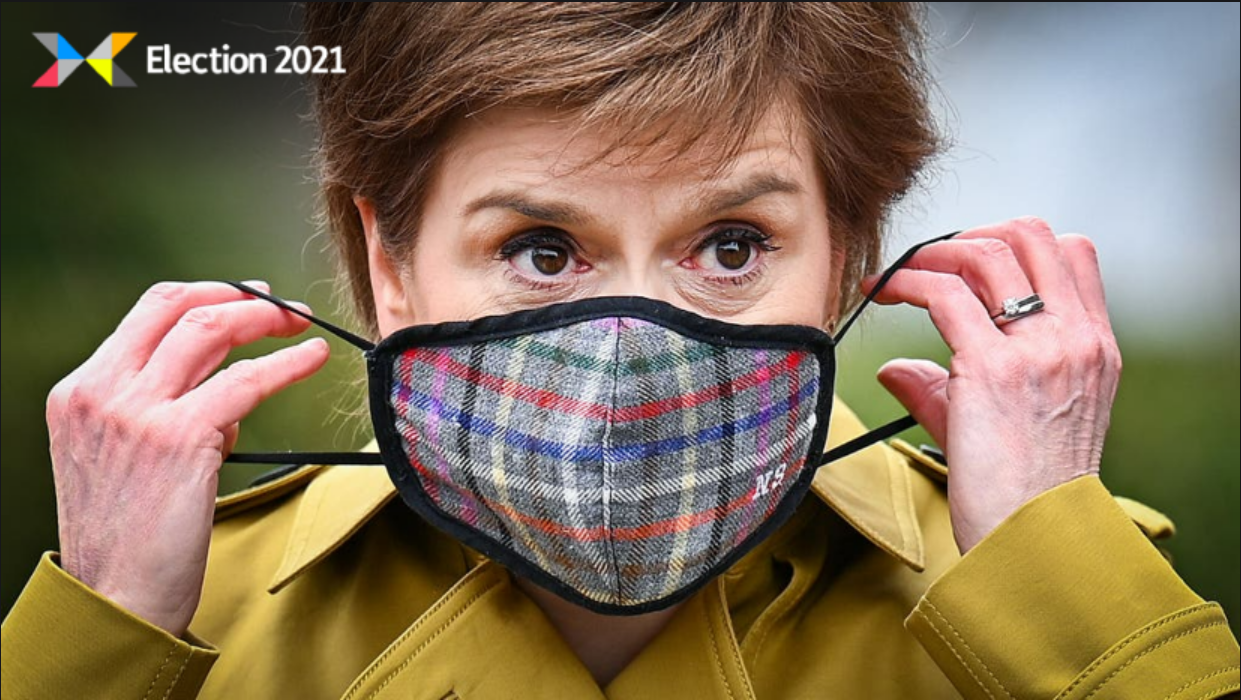The coronavirus pandemic led to a Scottish election season like no other, with parties unable to campaign as they normally would.
Gone were election rallies, in-person hustings, street stalls and similar events.
Coronavirus has also shaped policies, with parties proposing different routes out of lockdown and towards economic recovery.
The SNP’s Parliamentary business minister Graeme Dey set out the agreed rules on political campaigning in the coronavirus era to MSPs on March 2.
These included rules around leafleting and doorstep campaigning.
However Dey and Deputy First Minister John Swinney later had to apologise for breaking the rules after they were pictured campaigning with groups of activists later in March – Nicola Sturgeon said they were both “mortified” at the mistakes.
While the First Minister’s televised coronavirus briefings have been reduced over the election period, they have not stopped altogether.
One of these led to a Twitter row between Ms Sturgeon and Scottish Labour leader Anas Sarwar, who felt an “unscheduled” briefing was delaying the launch of his party manifesto.
The Scottish Government denied the briefing was unplanned.
As the country emerges from lockdown, the Scottish Conservatives have proposed a faster easing of restrictions than their rivals.
Douglas Ross wants to see a number of measures currently due to end on May 17 lifted three weeks earlier, including the serving of alcohol indoors.
All the parties have made the economic recovery from coronavirus a theme in their election manifestos, setting out policies designed to create jobs.
The SNP promises a £100 million green jobs fund, with £500 million over the next five years going towards creating jobs and reskilling.
Scottish Labour has vowed to “put national recovery before all else”, pledging a variety of schemes which would lead to the creation of 170,000 jobs.
The Tories say their policies will lead to 200,000 jobs over the course of the next Parliament, including through job security councils which would help those recently made redundant.
Coronavirus will also affect the way votes are counted in the election.
Results will not be declared as quickly as previously, as counting will not take place overnight after polls close at 10pm on May 6.
Rather than the early hours of the following morning, this year’s election results should hopefully be clear by the end of the weekend.
Follow STV News on WhatsApp
Scan the QR code on your mobile device for all the latest news from around the country


 PA Media
PA Media

























